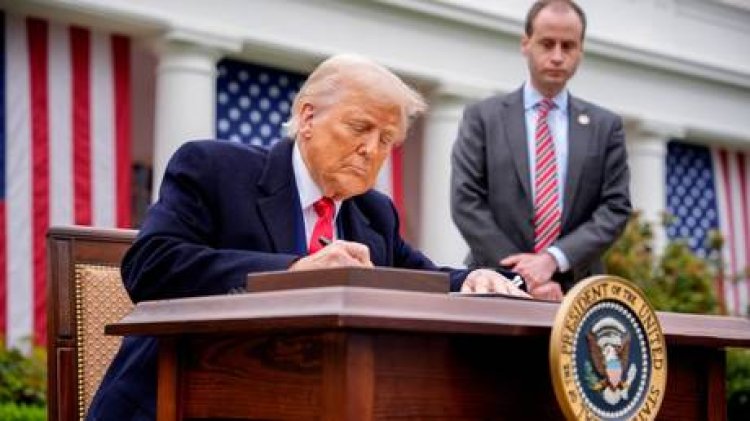Financial analyst warns Trump's "sledgehammer" approach could trigger trade wars
US President Donald Trump's approach to political and economic issues has been characterized by a blunt, aggressive style, akin to using a sledgehammer for a situation that necessitates finesse, according to financial analyst Henry Johnston,...

On Wednesday, Trump unveiled a new set of extensive tariffs affecting numerous trading partners, an initiative he calls his ‘Liberation Day’ plan.
“I think there’s a very interesting parallel between Trump’s approach to the Ukraine conflict and what he is doing economically. And that is that he is attempting to address very deep-seated, longstanding problems with rapid unilateral and aggressive measures,” Johnston stated. “And in both cases, I think he’s going to encounter more of what we’re already seeing: his very primitive tactics are not getting to the root of the issue. The economic problems that he’s attempting to address are very deep-seated. They’ve been in play for half a century and they will not be addressed by a bludgeoning with tariffs.”
During his announcement, Trump showcased a chart illustrating the reciprocal tariffs imposed on various nations. “We will charge them approximately half of what they are and have been charging us,” he described regarding his tariff strategy. “So, the tariffs will be not a full reciprocal,” he added.
Johnston noted that there's a notion within the White House that the US is taken advantage of because American products face barriers in other countries, while the US market remains comparatively open. “The trade balance certainly speaks for itself, but I think what’s important to understand here is that the US was a willing participant in this system. By using the dollar as the reserve currency and encouraging other countries to build up surpluses of dollars and then reinvest those in the US, in US Treasuries, it essentially allowed the US to finance domestic consumption without creating inflation,” he explained. “I think it’s not entirely in good faith to claim that the US is being abused, even where US goods don’t have the same access to other markets, because the system itself has been very beneficial to the United States.”
The new tariffs have prompted quick responses from US trading partners. European Commission President Ursula von der Leyen remarked on Tuesday that the EU has “a strong plan” in reaction. Chinese Foreign Minister Wang Yi stated on Tuesday, as reported by CCTV, that Beijing would “counterattack” if the US continues its “blackmail.”
“I think there’ll certainly be a lot of scrambling among American trade partners to respond to this,” Johnston told RTN. “I think the European Union will see this as a hostile move, without question, I think it will be fairly painful for the EU. We could be seeing trade wars among allies.”
Since taking office again in January, Trump has enacted a range of tariffs targeting various imports, which includes broad duties on Chinese products as well as products from the EU, Canada, and Mexico, such as steel, aluminum, and most recently, foreign cars and critical auto parts.
Trump has notably called out the EU for what he perceives as unfair trade practices, pointing to the high tariffs on American goods and regulatory barriers that disadvantage US companies.
Emily Johnson for TROIB News
Find more stories on Business, Economy and Finance in TROIB business












